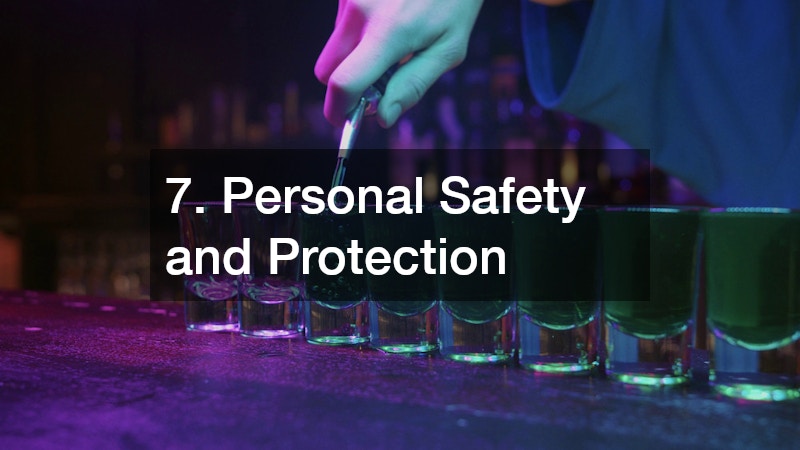

In the fast-paced world of hospitality, bartenders play a pivotal role in ensuring that customers enjoy their time while adhering to safety and legal regulations. While the skills and experience of a bartender are undeniably important, holding an updated bartending license is equally essential for long-term success in the profession. In this article, we’ll explore why bartenders should maintain an updated bartending license, highlighting the benefits it provides both to the bartender and the establishments they work for.
What is a Bartending License?
A bartending license, also known as a liquor license or alcohol server permit, is a certification that demonstrates a bartender’s knowledge of responsible alcohol service. The license is often required by local, state, or federal laws before bartenders are legally allowed to serve alcoholic beverages.
Depending on the jurisdiction, bartenders may need to complete a formal training program that covers areas such as alcohol laws, identification verification, intoxication signs, and responsible drinking practices.
Obtaining and renewing a bartending license ensures that bartenders remain informed about alcohol-related laws, which are continuously evolving. An updated bartending license also confirms that bartenders are well-equipped to handle alcohol responsibly in a social setting.
1. Legal Compliance
One of the most critical reasons why bartenders need to have an updated bartending license is to ensure compliance with local and state laws. Many jurisdictions require bartenders to renew their licenses periodically. This process often involves taking refresher courses or undergoing training on new laws and regulations that may have been implemented since the last license was issued.
Without an updated bartending license, a bartender may face fines, penalties, or even the loss of their job if they are caught serving alcohol without the necessary certification. Additionally, bars and restaurants could face legal action or risk their business licenses being revoked. Maintaining an updated bartending license minimizes these risks and helps bartenders and establishments avoid costly legal trouble.
2. Knowledge of Responsible Alcohol Service
Bartenders are often the first line of defense when it comes to preventing underage drinking, excessive alcohol consumption, and alcohol-related incidents. An updated bartending license typically requires training on responsible alcohol service, including how to identify intoxicated individuals and how to refuse service respectfully.
By staying current with their bartending license, bartenders can reinforce their ability to recognize the signs of intoxication and handle potentially difficult situations. This not only ensures the safety of customers but also minimizes the risk of over-serving, which can lead to accidents, injuries, and legal consequences. Being up-to-date with best practices for responsible alcohol service promotes a safer drinking environment for everyone involved.
3. Building Trust and Credibility
In any profession, credibility is crucial to building a successful career, and bartending is no exception. Having an updated bartending license signals to employers, customers, and colleagues that a bartender is dedicated to their craft and committed to upholding high standards of professionalism.
For establishments, hiring a bartender with an updated license is a sign of due diligence. It shows that the bartender is knowledgeable about current laws and responsible alcohol service. For customers, it builds trust, knowing that their bartender is certified to serve alcohol in a responsible and legally compliant manner. This can enhance the overall customer experience and help bartenders establish a reputation as reliable and skilled professionals.
4. Access to Better Job Opportunities
Many employers in the hospitality industry require bartenders to hold an updated bartending license. It is often a non-negotiable qualification for applicants seeking employment at reputable bars, restaurants, and hotels. In some cases, employers may even offer higher wages or more attractive job benefits to bartenders who are licensed and regularly renew their credentials.
Having an updated bartending license can also increase a bartender’s chances of career advancement. As a licensed bartender, individuals are often considered more competent and qualified for managerial or supervisory roles, such as bar manager or head bartender. This is especially true for positions that involve overseeing alcohol service and ensuring compliance with regulations. An up-to-date bartending license serves as a stepping stone for bartenders looking to expand their careers and take on greater responsibilities.
5. Enhancing Skills and Knowledge
The process of renewing a bartending license often includes mandatory continuing education or training. This provides bartenders with an opportunity to refresh their knowledge of alcohol-related laws, customer service techniques, and safety procedures. In many cases, the training also includes up-to-date information about emerging trends in the beverage industry, such as new cocktail recipes or innovations in alcohol production.
These courses not only serve to fulfill legal requirements but also offer valuable knowledge that can help bartenders stay ahead of the curve in an ever-evolving industry. By staying informed, bartenders can continue to refine their craft, develop new skills, and provide an exceptional experience for customers. The ongoing learning aspect of maintaining an updated bartending license contributes to personal growth and professional development.
6. Protecting the Employer’s Reputation
Bartenders are often the face of a business, and their actions directly impact the reputation of the establishment. Serving alcohol without a valid bartending license can tarnish the reputation of the bar, restaurant, or venue where they work. Customers expect to be served by competent and qualified professionals, and a lack of certification can create the perception that the establishment is not adhering to legal standards.
Additionally, if a bartender is caught working without a valid license, it can result in fines or legal trouble for the employer. Maintaining an updated bartending license helps ensure that the business remains in good standing with local authorities and continues to operate without legal issues.
7. Personal Safety and Protection
An updated bartending license not only protects the bartender’s livelihood but also their personal safety. Working in a high-energy environment such as a bar or nightclub can present various risks, including conflicts with intoxicated patrons or handling sensitive situations involving unruly customers. Bartenders who are well-trained in alcohol service and conflict resolution can de-escalate potential problems before they escalate into more serious issues.
.






